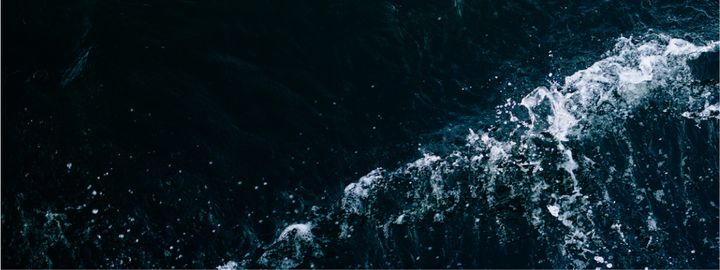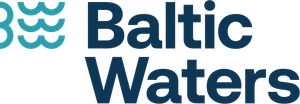Scientific Advice states that Baltic Sea herring stocks are below safe levels. NGOs: "stop while there is still time"
1.6.2023 14:38:04 CEST | BalticWaters | Pressmeddelande

1 June 2023 – Several years ago, the alarm bells went off along Sweden’s eastern coast several years ago: there is no longer any larger herring to be caught, a herring used for traditional human consumption. In fact, some coastal fishermen do not find any herring at all. At the same time, operators of larger offshore vessels claim that fishing for herring is fine. This is a repeating pattern and not only in the Baltic Sea; fish starts to disappear along the coast and after a few years the catches in the open sea also start to decrease.
In the case of the Baltic cod, that meant a total fish stock collapse and despite a fishing closure, no improvement can be seen. The scientific advice from ICES released on 31st notes that the herring stocks that aggregate in the southern main basin of the Baltic Sea as well as the more northern stocks in Bothnian Sea are at very low levels and even with fishing halted, the stocks will likely not bounce back in 2025. ICES advises to cut the herring quotas with about 50% compared to 2023, they also advise on reduced sprat catches and continued zero catch for cod in the eastern part of the Baltic Sea.
“It is simply catastrophic and we feel that emergency measures should be taken already now in 2023. The Council will meet in October to set fishing quotas for next year but with the facts and figures at hand, it is irresponsible not to act swiftly already now”, says Nils Höglund, Fisheries Policy Officer at Coalition Clean Baltic (CCB). He concludes: "The Commission has the option to initiate emergency measures and we think the time has come to seriously consider this option."
ICES data and modelling shows that even with no fishing at all, there is still likely a 10-20% chance that the stocks will not be replenished even above the lowest level set in the scientific advice, the so-called biomass limit value. For the herring stocks below Åland Islands, there is an 88% chance that stocks will not reach safe levels with zero fishing. ICES notes that misreporting of catches undermines the quality of the data and that this only increases the level of uncertainty of the given advice. In this context, ICES says that they have not quantified what effects misreporting and data quality has.
"Considering the scientific data, the continuous alarming reports from coastal fishermen and the strong negative trend in the herring stocks north and south, it is clear that the previous management has failed. We see the same pattern now for herring that we saw with cod before it collapsed, this is not ecosystem based management, this is fishing down the food web" says Sara Söderström, Policy Officer at FishSec.
“For decades, we have fished down wild fish stocks in the Baltic Sea. According to ICES' latest advice, historically large populations are at levels where there is a high probability that they will not recover. It is clear that the management model (MSY) is not working, that the monitoring and reporting of catches is not working, and that biological data is either wrong or insufficient. The responsibility now lies heavy on the Commission and the Council of Ministers - this might be the last chance to save the wild Baltic Sea fish”, says Konrad Stralka, CEO at BalticWaters.
For both cod stocks in the Baltic, the situation is critical and with no sign of improvement. ICES indicates that the western cod stock around the German, Danish and Swedish coasts needs a cut in catches and advices a maximum of only 24 tonnes in total, covering both commercial and recreational fishing. This is a steep decrease from last year's advice which was a maximum of 943 tonnes. Even though ICES does note that the plaice stocks seems to be the only fish stock growing, fishing for plaice is problematic since when caught with bottom trawling gear, as this also catches cod as bycatch. Better gears are available but those are not mandatory nor legal to use yet.
"Despite the closure of the cod fishery, cod is still being caught as by-catch by bottom trawlers fishing after flatfish like plaice. We must reduce cod by-catch by introducing bottom trawl free zones in key cod areas as well as electronic monitoring on trawl boats to stop illegal discarding of cod", says Cathrine Pedersen Schirmer, Chief Advisor at the Danish Society for Nature Conservation.
There is still one area and herring stock that differs from the rest and that is the Gulf of Riga. The herring that spawn in this area is doing better, yet ICES does advise to reduce the catches with 17% compared to its advice last year. Still, the recruitment and amount of herring is at safe levels here.
"The Gulf of Riga indicates that industrial fishing with huge vessels on a mix of fish stocks is the problem in the Baltic. A limited fishery for human consumption is possible even in the current conditions but industrial trawling in the Gulf of Bothnia needs to be stopped along with vessels that mix large volumes sprat and herring in their catches, if we are to reverse the decline in herring stocks", says Christian Tsangarides, Low Impact Fishers of Europe, LIFE
![]()
Coalition Clean Baltic (CCB) - Is a politically independent, non-profit association, which unites 27 NGOs, with over 1 500 000 members in all countries around the Baltic Sea. The main goal of CCB is to promote the protection and improvement of the Baltic Sea environment and its natural resources for present and future generations. More info at: www.ccb.se
FishSec - Is a politically independent non-profit organisation. We are dedicated to the protection and restoration of marine ecosystem services, with a focus on fisheries. www.fishsec.org
Danish Society for Nature Conservation - It is a membership based environmental organisation that works to conserve nature and the environment in Denmark through local work, conservation, lobbying and specific projects. www.dn.dk
BalticWaters - Is an independent foundation engaged in efforts to improve the Baltic Sea environment. The foundation conducts large-scale environmental projects with focus on action-oriented measures and applied research to show which measures can contribute to a healthier sea and viable fish stocks. More about BalticWaters at: https://balticwaters.org
The Low Impact Fishers of Europe (LIFE Platform) - is an EU-wide platform of associations of small-scale fishers committed to fishing in a low impact manner while maximising their socio-economic impact. Small-scale fishing is part of the solution, and LIFE's mission is to unite small-scale fishers to achieve fair fisheries, healthy seas and vibrant communities. More about LIFE at: https://lifeplatform.eu
CONTACT
Nils Höglund nils.hoglund@ccb.se
Sara Söderström sara.soderstrom@fishsec.org
Konrad Stralka konrad.stralka@balticwaters.org
Cathrine Pedersen Schirmer cathrine@dn.dk
Christian Tsangarides bans@lifeplatform.eu
Nyckelord
Kontakter
Konrad StralkaVerkställande ledamot
Tel:+46 (0)70 750 23 31konrad.stralka@balticwaters.orgBilder
Länkar
Om
BalticWaters är en oberoende stiftelse med ett enda mål: att vårt hav ska leva. Stiftelsen genomför miljöprojekt och bedriver tillämpad forskning för att visa vilka åtgärder som kan bidra till en friskare Östersjö och livskraftiga fiskbestånd.
BalticWaters verkar också för att utveckla och sprida kunskap om havet till allmänhet, myndigheter och beslutsfattare. Målet är att öka kunskapen om de utmaningar som havet står inför och bygga opinion så att beslut blir tagna och åtgärder genomförda.
Följ BalticWaters
Abonnera på våra pressmeddelanden. Endast mejladress behövs och den används bara här. Du kan avanmäla dig när som helst.
Senaste pressmeddelandena från BalticWaters
Nytt policydokument: Fisk är mer än bara mat2.2.2026 07:00:00 CET | Pressmeddelande
Det småskaliga kustfisket är en livsnerv för många kustsamhällen. Det håller liv i mattraditioner, skapar arbetstillfällen, förser lokalsamhället med livsmedel och lockar turister till kusten. Men dagens fiskeriförvaltning urholkar förutsättningarna för småskaligt fiske och därmed även de mervärden fisket skapar.
Återcirkulering av näring – bra för havet och livsmedelsberedskapen27.1.2026 07:00:00 CET | Pressmeddelande
Resultaten från BalticWaters femåriga demonstrationsprojekt visar hur man kan återcirkulera näring i jordbruket. Och intresset är stort hos svenska jordbrukare. En smartare användning av näringsämnena stärker den svenska livsmedelsberedskapen och minskar risken för att ny näring läcker till Östersjön och förvärrar övergödningen.
Kreativa lösningar på Östersjöns komplexa problem28.5.2025 07:00:00 CEST | Pressmeddelande
Årets vinnare av stipendietävlingen ”Elever för Östersjön” har imponerat med breda perspektiv och kreativa lösningar på några av Östersjöns stora miljöutmaningar. Nu väntar en studieresa till Baltic Sea Science Center på Skansen där de vinnande klasserna får dyka djupare ned i havets utmaningar och möjligheter.
Ny forskning för ett levande hav20.3.2025 07:00:00 CET | Pressmeddelande
Två forskare har tilldelats medel genom BalticWaters stipendieprogram för forskare i början av karriären. Deras studier har potential att bidra till en levande Östersjö genom att öka kunskapen om våra laxpopulationer och underlätta för införandet av marina skyddade områden. - Det är otroligt glädjande att bli tilldelad BalticWaters stipendium! Effektiva åtgärder i marina skyddsområden är avgörande för Östersjöns återhämtning, men bromsas ofta av rädsla för att inskränka andra staters rättigheter. Stipendiet ger mig möjligheten att utveckla rättslig vägledning för en mer dynamisk tillämpning av regler för marina skyddade områden, säger Niels Krabbe, forskare vid Göteborgs universitet.
Ylva Berg Axell blir ny ordförande för BalticWaters17.3.2025 09:13:20 CET | Pressmeddelande
Ylva Berg Axell har utsetts till ny ordförande för BalticWaters. Hon valdes till ordförande av en enig styrelsen den 14e mars 2025 och efterträder Otto von Arnold, som varit stiftelsens ordförande sen arbetet påbörjades 2020.
I vårt pressrum kan du läsa de senaste pressmeddelandena, få tillgång till pressmaterial och hitta kontaktinformation.
Besök vårt pressrum

